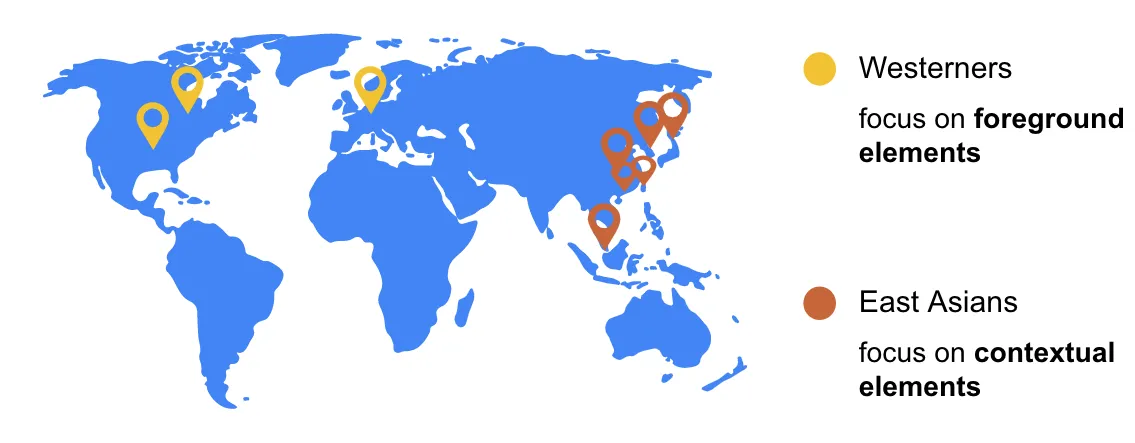publications
publications by categories in reversed chronological order. generated by jekyll-scholar.
2025
-
 Understanding Children’s Avatar Making in Social Online GamesYue Fu, Samuel Schwamm, Amanda Baughan, and 10 more authorsIn Proceedings of the 2025 CHI Conference on Human Factors in Computing Systems, Yokohama, Japan, 2025
Understanding Children’s Avatar Making in Social Online GamesYue Fu, Samuel Schwamm, Amanda Baughan, and 10 more authorsIn Proceedings of the 2025 CHI Conference on Human Factors in Computing Systems, Yokohama, Japan, 2025Social online games like Minecraft and Roblox have become increasingly integral to children’s daily lives. Our study explores how children aged 8 to 13 create and customize avatars in these virtual environments. Through semi-structured interviews and gameplay observations with 48 participants, we investigate the motivations behind children’s avatar-making. Our findings show that children’s avatar creation is motivated by self-representation, experimenting with alter ego identities, fulfilling social needs, and improving in-game performance. In addition, designed monetization strategies play a role in shaping children’s avatars. We identify the “wardrobe effect,” where children create multiple avatars but typically use only one favorite consistently. We discuss the impact of cultural consumerism and how social games can support children’s identity exploration while balancing self-expression and social conformity. This work contributes to understanding how avatar shapes children’s identity growth in social online games.
@inproceedings{fu2025avatars, author = {Fu, Yue and Schwamm, Samuel and Baughan, Amanda and Powell, Nicole M and Kronberg, Zoe and Owens, Alicia and Izenman, Emily Renee and Alsabeh, Dania and Hunt, Elizabeth and Rich, Michael and Bickham, David and Radesky, Jenny and Hiniker, Alexis}, title = {Understanding Children's Avatar Making in Social Online Games}, year = {2025}, isbn = {9798400713941}, publisher = {Association for Computing Machinery}, address = {New York, NY, USA}, url = {https://doi.org/10.1145/3706598.3713262}, doi = {10.1145/3706598.3713262}, booktitle = {Proceedings of the 2025 CHI Conference on Human Factors in Computing Systems}, articleno = {136}, numpages = {16}, keywords = {Avatar, Game, Social Game, Roblox, Minecraft, Fortnite}, location = {Yokohama, Japan}, series = {CHI '25}, }
2024
-
 Supporting Hard Conversations in Close Relationships Through DesignAmanda Baughan, Larry Tian, Pranav Shekar, and 2 more authorsProc. ACM Hum.-Comput. Interact., Nov 2024
Supporting Hard Conversations in Close Relationships Through DesignAmanda Baughan, Larry Tian, Pranav Shekar, and 2 more authorsProc. ACM Hum.-Comput. Interact., Nov 2024Relationships are perhaps the single greatest source of human happiness, and as part of building strong relationships, conflict and hard conversations are unavoidable. As people increasingly rely on digital communication to initiate and resolve conflicts, we examine how design can improve the experience of working through hard conversations within close relationships. We interviewed six psychotherapists and twenty-one social media users to understand both theoretical best practices for navigating conflict and users’ experiences with hard conversations online, particularly on text-based messaging platforms. We used our findings to create a temporal model of how digital design could intervene to support users and their relationships during these conversations. Specifically, we find that design can help to facilitate more mutually consensual difficult conversations, support emotional regulation during the conversation, and help facilitate pauses when necessary. We explore the tensions between balancing the needs of relationships and the individuals in them in digital design, and how to center relationships in digital design.
@article{baughan2024hardconversations, author = {Baughan, Amanda and Tian, Larry and Shekar, Pranav and Zhang, Amy and Hiniker, Alexis}, title = {Supporting Hard Conversations in Close Relationships Through Design}, year = {2024}, issue_date = {November 2024}, publisher = {Association for Computing Machinery}, address = {New York, NY, USA}, volume = {8}, number = {CSCW2}, url = {https://doi.org/10.1145/3686918}, doi = {10.1145/3686918}, journal = {Proc. ACM Hum.-Comput. Interact.}, month = nov, articleno = {379}, numpages = {22}, keywords = {computer-mediated communication, conflict, design, social media}, } -
 Investigating Attention and Normative Dissociation in Children’s Social Video GamesAmanda Baughan, Yue Fu, Emily Izenman, and 8 more authorsIn Proceedings of the 23rd Annual ACM Interaction Design and Children Conference, Delft, Netherlands, Nov 2024
Investigating Attention and Normative Dissociation in Children’s Social Video GamesAmanda Baughan, Yue Fu, Emily Izenman, and 8 more authorsIn Proceedings of the 23rd Annual ACM Interaction Design and Children Conference, Delft, Netherlands, Nov 2024Children’s video games are controversial for their deeply engrossing nature. We conducted an interview and observational study with 17 eight-to-thirteen-year-olds to examine how they deploy their attention while gaming. In sessions of 60-75 minutes, a research assistant toured either Roblox or Minecraft, following the lead of a child participant. We analyzed a segment of these interviews to understand participants’ patterns of normative dissociation—experiences of complete cognitive absorption that exclude processing of the environment beyond the focus of attention. Our analysis revealed that many of our participants had experiences that fit the model of normative dissociation. Participants reported becoming deeply absorbed in games to the point of losing track of time and not paying attention to their surroundings. Game design influenced children’s patterns of normative dissociation, and in particular, user-paced traveling through the game environment and game-initiated pauses allowed children to more easily attend to stimuli outside the game. We recommend parental controls leverage these points of game play to collaboratively support children’s time management during gameplay.
@inproceedings{baughan2024dissociation, author = {Baughan, Amanda and Fu, Yue and Izenman, Emily and Schwamm, Samuel and Alsabeh, Dania and Powell, Nicole and Hunt, Elizabeth and Rich, Michael and Bickham, David and Radesky, Jenny and Hiniker, Alexis}, title = {Investigating Attention and Normative Dissociation in Children's Social Video Games}, year = {2024}, isbn = {9798400704420}, publisher = {Association for Computing Machinery}, address = {New York, NY, USA}, url = {https://doi.org/10.1145/3628516.3655808}, doi = {10.1145/3628516.3655808}, booktitle = {Proceedings of the 23rd Annual ACM Interaction Design and Children Conference}, pages = {30–43}, numpages = {14}, keywords = {attention, normative dissociation, social gaming, youth gaming}, location = {Delft, Netherlands}, series = {IDC '24}, }
2023
- Honorable Mention
 A Mixed-Methods Approach to Understanding User Trust after Voice Assistant FailuresAmanda Baughan, Xuezhi Wang, Ariel Liu, and 3 more authorsIn Proceedings of the 2023 CHI Conference on Human Factors in Computing Systems, Hamburg, Germany, Nov 2023
A Mixed-Methods Approach to Understanding User Trust after Voice Assistant FailuresAmanda Baughan, Xuezhi Wang, Ariel Liu, and 3 more authorsIn Proceedings of the 2023 CHI Conference on Human Factors in Computing Systems, Hamburg, Germany, Nov 2023Despite huge gains in performance in natural language understanding via large language models in recent years, voice assistants still often fail to meet user expectations. In this study, we conducted a mixed-methods analysis of how voice assistant failures affect users’ trust in their voice assistants. To illustrate how users have experienced these failures, we contribute a crowdsourced dataset of 199 voice assistant failures, categorized across 12 failure sources. Relying on interview and survey data, we find that certain failures, such as those due to overcapturing users’ input, derail user trust more than others. We additionally examine how failures impact users’ willingness to rely on voice assistants for future tasks. Users often stop using their voice assistants for specific tasks that result in failures for a short period of time before resuming similar usage. We demonstrate the importance of low stakes tasks, such as playing music, towards building trust after failures.
@inproceedings{baughan2023voiceassistantfailures, author = {Baughan, Amanda and Wang, Xuezhi and Liu, Ariel and Mercurio, Allison and Chen, Jilin and Ma, Xiao}, title = {A Mixed-Methods Approach to Understanding User Trust after Voice Assistant Failures}, year = {2023}, isbn = {9781450394215}, publisher = {Association for Computing Machinery}, address = {New York, NY, USA}, url = {https://doi.org/10.1145/3544548.3581152}, doi = {10.1145/3544548.3581152}, booktitle = {Proceedings of the 2023 CHI Conference on Human Factors in Computing Systems}, articleno = {7}, numpages = {16}, keywords = {interview, trust, dataset, survey, voice assistants}, location = {Hamburg, Germany}, series = {CHI '23}, } -
 Attached to “The Algorithm”: Making Sense of Algorithmic Precarity on InstagramYim Register, Lucy Qin, Amanda Baughan, and 1 more authorIn Proceedings of the 2023 CHI Conference on Human Factors in Computing Systems, Hamburg, Germany, Nov 2023
Attached to “The Algorithm”: Making Sense of Algorithmic Precarity on InstagramYim Register, Lucy Qin, Amanda Baughan, and 1 more authorIn Proceedings of the 2023 CHI Conference on Human Factors in Computing Systems, Hamburg, Germany, Nov 2023This work explores how users navigate the opaque and ever-changing algorithmic processes that dictate visibility on Instagram through the lens of Attachment Theory. We conducted thematic analysis on 1,100 posts and comments on r/Instagram to understand how users engage in collective sensemaking with regards to Instagram’s algorithms, user-perceived punishments, and strategies to counteract algorithmic precarity. We found that the unpredictability in how Instagram rewards or punishes a user can lead to distress, hypervigilance, and a need to appease “the algorithm’’. We therefore frame these findings through Attachment Theory, drawing upon the metaphor of Instagram as an unreliable paternalistic figure that inconsistently rewards users [74]. User experiences are then contextualized through the lens of anxious, avoidant, disorganized, and secure attachment. We conclude by making suggestions for fostering secure attachment towards the Instagram algorithm, by suggesting potential strategies to help users successfully cope with uncertainty.
@inproceedings{register2023attachedalgorithm, author = {Register, Yim and Qin, Lucy and Baughan, Amanda and Spiro, Emma S.}, title = {Attached to “The Algorithm”: Making Sense of Algorithmic Precarity on Instagram}, year = {2023}, isbn = {9781450394215}, publisher = {Association for Computing Machinery}, address = {New York, NY, USA}, url = {https://doi.org/10.1145/3544548.3581257}, doi = {10.1145/3544548.3581257}, booktitle = {Proceedings of the 2023 CHI Conference on Human Factors in Computing Systems}, articleno = {563}, numpages = {15}, keywords = {thematic analysis, social media algorithms, content moderation, algorithmic precarity, Attachment Theory, social media and mental health, folk theorization, Instagram, algorithmic transparency}, location = {Hamburg, Germany}, series = {CHI '23}, }
2022
-
 “I Don’t Even Remember What I Read”: How Design Influences Dissociation on Social MediaAmanda Baughan, Mingrui Ray Zhang, Raveena Rao, and 4 more authorsIn CHI Conference on Human Factors in Computing Systems, New Orleans, LA, USA, Nov 2022
“I Don’t Even Remember What I Read”: How Design Influences Dissociation on Social MediaAmanda Baughan, Mingrui Ray Zhang, Raveena Rao, and 4 more authorsIn CHI Conference on Human Factors in Computing Systems, New Orleans, LA, USA, Nov 2022Many people have experienced mindlessly scrolling on social media. We investigated these experiences through the lens of normative dissociation: total cognitive absorption, characterized by diminished self-awareness and reduced sense of agency. To explore user experiences of normative dissociation and how design affects the likelihood of normative dissociation, we deployed Chirp, a custom Twitter client, to 43 U.S. participants. Experience sampling and interviews revealed that sometimes, becoming absorbed in normative dissociation on social media felt like a beneficial break. However, people also reported passively slipping into normative dissociation, such that they failed to absorb any content and were left feeling like they had wasted their time. We found that designed interventions–including custom lists, reading history labels, time limit dialogs, and usage statistics–reduced normative dissociation. Our findings demonstrate that interaction designs intended to capture attention likely do so by harnessing people’s natural inclination to seek normative dissociation experiences. This suggests that normative dissociation may be a more productive framing than addiction for discussing social media overuse.
@inproceedings{baughan2022dissociation, author = {Baughan, Amanda and Zhang, Mingrui Ray and Rao, Raveena and Lukoff, Kai and Schaadhardt, Anastasia and Butler, Lisa D. and Hiniker, Alexis}, title = {“I Don’t Even Remember What I Read”: How Design Influences Dissociation on Social Media}, year = {2022}, isbn = {9781450391573}, publisher = {Association for Computing Machinery}, address = {New York, NY, USA}, url = {https://doi.org/10.1145/3491102.3501899}, doi = {10.1145/3491102.3501899}, booktitle = {CHI Conference on Human Factors in Computing Systems}, articleno = {18}, numpages = {13}, keywords = {design, dissociation, normative dissociation, social media, social media addiction}, location = {New Orleans, LA, USA}, series = {CHI '22}, } -
 Shame on Who? Experimentally Reducing Shame During Political Arguments on TwitterAmanda Baughan, Katherine Alejandra Cross, Elena Khasanova, and 1 more authorProc. ACM Hum.-Comput. Interact., Nov 2022
Shame on Who? Experimentally Reducing Shame During Political Arguments on TwitterAmanda Baughan, Katherine Alejandra Cross, Elena Khasanova, and 1 more authorProc. ACM Hum.-Comput. Interact., Nov 2022Online political arguments have a reputation for being futile exchanges, partially because people often respond more punitively to those who do not share their views, a phenomenon called ingroup bias. We explore how ingroup bias affects political disagreements online, and how respect can mitigate its effects. Towards this goal, we conducted an experiment on Twitter systematically varying respectful versus neutral disagreement language across people who did and did not share views. We found that people who do not share views were most likely to reply to disagreements, and neutral disagreements generated more discussions than respectful disagreements. However, we also found that using respectful language increased respectful language received in return, and it reduced the effects of ingroup bias across conversations with people who do and do not share the same views. We conclude with recommendations to promote respectful language on social media and build shame resiliency online, such as designs that encourages thoughtful engagement and a peer support network that allows users to share shame experiences online.
@article{baughan2022shameonwho, author = {Baughan, Amanda and Cross, Katherine Alejandra and Khasanova, Elena and Hiniker, Alexis}, title = {Shame on Who? Experimentally Reducing Shame During Political Arguments on Twitter}, year = {2022}, issue_date = {November 2022}, publisher = {Association for Computing Machinery}, address = {New York, NY, USA}, volume = {6}, number = {CSCW2}, url = {https://doi.org/10.1145/3555216}, doi = {10.1145/3555216}, journal = {Proc. ACM Hum.-Comput. Interact.}, month = nov, articleno = {325}, numpages = {18}, keywords = {social media, group dynamics, political conflicts, shame, respect}, } -
 Monitoring Screen Time or Redesigning It? Two Approaches to Supporting Intentional Social Media UseMingrui Ray Zhang, Kai Lukoff, Raveena Rao, and 2 more authorsIn CHI Conference on Human Factors in Computing Systems, New Orleans, LA, USA, Nov 2022
Monitoring Screen Time or Redesigning It? Two Approaches to Supporting Intentional Social Media UseMingrui Ray Zhang, Kai Lukoff, Raveena Rao, and 2 more authorsIn CHI Conference on Human Factors in Computing Systems, New Orleans, LA, USA, Nov 2022Existing designs helping people manage their social media use include: 1) external supports that monitor and limit use; 2) internal supports that change the interface itself. Here, we design and deploy Chirp, a mobile Twitter client, to independently examine how users experience external and internal supports. To develop Chirp, we identified 16 features that influence users’ sense of agency on Twitter through a survey of 129 participants and a design workshop. We then conducted a four-week within-subjects deployment with 31 participants. Our internal supports (including features to filter tweets and inform users when they have exhausted new content) significantly increased users’ sense of agency, while our external supports (a usage dashboard and nudges to close the app) did not. Participants valued our internal supports and said that our external supports were for “other people.” Our findings suggest that design patterns promoting agency may serve users better than screen time tools.
@inproceedings{zhang2022intentional, author = {Zhang, Mingrui Ray and Lukoff, Kai and Rao, Raveena and Baughan, Amanda and Hiniker, Alexis}, title = {Monitoring Screen Time or Redesigning It? Two Approaches to Supporting Intentional Social Media Use}, year = {2022}, isbn = {9781450391573}, publisher = {Association for Computing Machinery}, address = {New York, NY, USA}, url = {https://doi.org/10.1145/3491102.3517722}, doi = {10.1145/3491102.3517722}, booktitle = {CHI Conference on Human Factors in Computing Systems}, articleno = {60}, numpages = {19}, keywords = {mobile phone, twitter, digital wellbeing, sense of agency, social media}, location = {New Orleans, LA, USA}, series = {CHI '22}, }
2021
- Honorable Mention
 Do Cross-Cultural Differences in Visual Attention Patterns Affect Search Efficiency on Websites?Amanda Baughan, Nigini Oliveira, Tal August, and 2 more authorsIn Proceedings of the 2021 CHI Conference on Human Factors in Computing Systems, Yokohama, Japan, Nov 2021
Do Cross-Cultural Differences in Visual Attention Patterns Affect Search Efficiency on Websites?Amanda Baughan, Nigini Oliveira, Tal August, and 2 more authorsIn Proceedings of the 2021 CHI Conference on Human Factors in Computing Systems, Yokohama, Japan, Nov 2021Prior work in cross-cultural psychology and neuroscience has shown robust variations in visual attention patterns. People from East Asian societies, in which a holistic thinking style predominates, have been found to attend to contextual information in scenes more than Westerners, whose tendency to think analytically expresses itself in greater attention to foreground objects. This paper applies these findings to website design, using an online study to evaluate whether Japanese (N=65) remember more and are faster at finding contextual website information than US Americans (N=84). Our results do not support this hypothesis. Instead, Japanese overall took significantly longer to find information than US participants—a difference that was exacerbated by an increase in website complexity—suggesting that Japanese may holistically take in a website before engaging with detailed information. We discuss implications of these findings for website design and cross-cultural research.
@inproceedings{baughanOliveira2021cultural, author = {Baughan, Amanda and Oliveira, Nigini and August, Tal and Yamashita, Naomi and Reinecke, Katharina}, title = {Do Cross-Cultural Differences in Visual Attention Patterns Affect Search Efficiency on Websites?}, year = {2021}, isbn = {9781450380966}, publisher = {Association for Computing Machinery}, address = {New York, NY, USA}, url = {https://doi.org/10.1145/3411764.3445519}, doi = {10.1145/3411764.3445519}, booktitle = {Proceedings of the 2021 CHI Conference on Human Factors in Computing Systems}, articleno = {362}, numpages = {12}, keywords = {website search efficiency, visual attention, culture}, location = {Yokohama, Japan}, series = {CHI '21}, } -
 Someone Is Wrong on the Internet: Having Hard Conversations in Online SpacesAmanda Baughan, Justin Petelka, Catherine Jaekyung Yoo, and 5 more authorsProc. ACM Hum.-Comput. Interact., Apr 2021
Someone Is Wrong on the Internet: Having Hard Conversations in Online SpacesAmanda Baughan, Justin Petelka, Catherine Jaekyung Yoo, and 5 more authorsProc. ACM Hum.-Comput. Interact., Apr 2021Good faith disagreements and healthy conflict management are essential to deliberative democracy and building strong relationships. People increasingly use computer-mediated communication during disagreements, which raises the question of how technology and design impact users’ disagreements and relationships. We conducted a mixed-methods study with 257 participants to understand how design impacts disagreements across both existing social media platforms and novel, user-generated designs. Through interviews, a survey, and storyboard evaluations, we found that users often want to discuss challenging topics online but avoid them due to fear of hurting their relationships. Further, we found that users are most excited about design interventions that empower collective group action, humanize others online, or support channel switching to more private or socially rich contexts. Our results suggest that although technology has the potential to support users during conflict, it is also rife with possibilities to do more harm than good by diluting users’ intentions, intruding, or backfiring. We introduce "interpersonal design,” which centers relationships in the design process, an essential step in supporting users in the challenging task of arguing well.
@article{baughan2021wrongOnline, author = {Baughan, Amanda and Petelka, Justin and Yoo, Catherine Jaekyung and Lo, Jack and Wang, Shiyue and Paramasivam, Amulya and Zhou, Ashley and Hiniker, Alexis}, title = {Someone Is Wrong on the Internet: Having Hard Conversations in Online Spaces}, year = {2021}, issue_date = {April 2021}, publisher = {Association for Computing Machinery}, address = {New York, NY, USA}, volume = {5}, number = {CSCW1}, url = {https://doi.org/10.1145/3449230}, doi = {10.1145/3449230}, journal = {Proc. ACM Hum.-Comput. Interact.}, month = apr, articleno = {156}, numpages = {22}, keywords = {conflict, computer-mediated communication, social media design, online arguments, interpersonal design}, }
2020
-
 Keep It Simple: How Visual Complexity and Preferences Impact Search Efficiency on WebsitesAmanda Baughan, Tal August, Naomi Yamashita, and 1 more authorIn Proceedings of the 2020 CHI Conference on Human Factors in Computing Systems, Honolulu, HI, USA, Apr 2020
Keep It Simple: How Visual Complexity and Preferences Impact Search Efficiency on WebsitesAmanda Baughan, Tal August, Naomi Yamashita, and 1 more authorIn Proceedings of the 2020 CHI Conference on Human Factors in Computing Systems, Honolulu, HI, USA, Apr 2020Past research has shown that people prefer different levels of visual complexity in websites: While some prefer simple websites with little text and few images, others prefer highly complex websites with many colors, images, and text. We conducted an online study with 165 participants in which we tested their search efficiency and information recall. We confirm that the visual complexity of a website has a significant negative effect on search efficiency and information recall. However, the search efficiency of those who preferred simple websites was more negatively affected by highly complex websites than those who preferred high visual complexity. Our results suggest that diverse visual preferences need to be accounted for when assessing search response time and information recall in HCI experiments, testing software, or A/B tests.
@inproceedings{baughan2020visual, author = {Baughan, Amanda and August, Tal and Yamashita, Naomi and Reinecke, Katharina}, title = {Keep It Simple: How Visual Complexity and Preferences Impact Search Efficiency on Websites}, year = {2020}, isbn = {9781450367080}, publisher = {Association for Computing Machinery}, address = {New York, NY, USA}, url = {https://doi.org/10.1145/3313831.3376849}, doi = {10.1145/3313831.3376849}, booktitle = {Proceedings of the 2020 CHI Conference on Human Factors in Computing Systems}, pages = {1–10}, numpages = {10}, keywords = {usability, search efficiency, visual appeal, design, user interface, visual complexity, information recall}, location = {Honolulu, HI, USA}, series = {CHI '20}, }